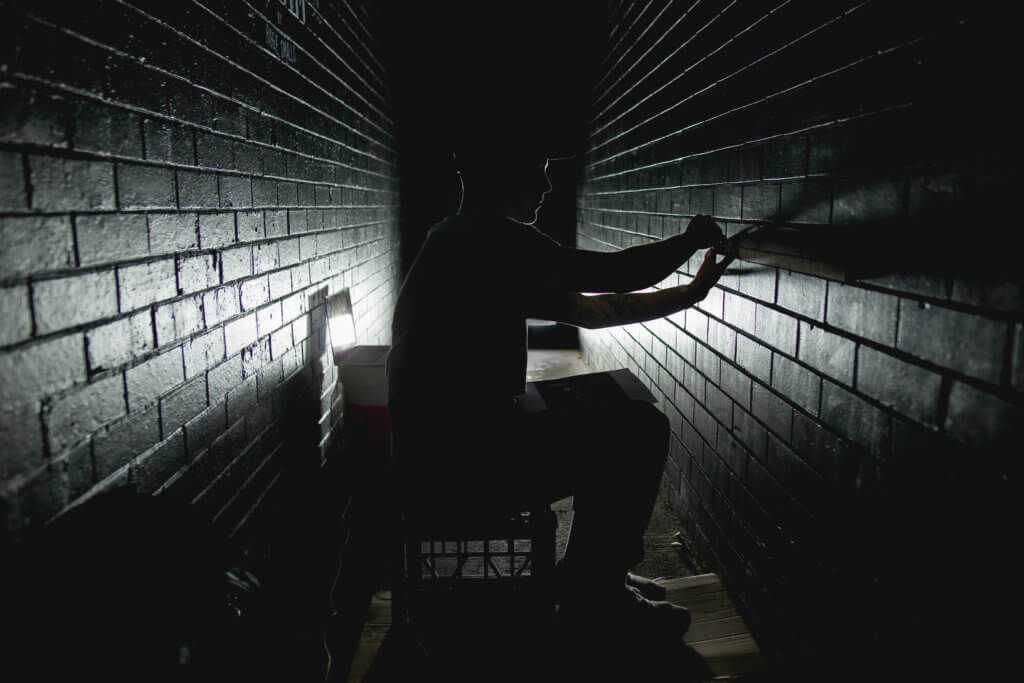What is a bricklayer?
Bricklayers construct brickwork for all types of buildings and structures. Generally, bricklayers work on residential, commercial or industrial projects. Traditionally, bricklayers would work only with traditional bricks and concrete blocks, but today, bricklayers also build with structural tiles, marble and other materials.
What does a bricklayer do?
A bricklayer’s role is primarily based on the construction of housing and other structures. The job can vary, and you can work on domestic buildings and commercial projects. Under the supervision of a contractor, a bricklayer can begin a project by marketing and measuring the area and then calculating how much material is needed. Once the materials are in place, the building process begins.
Typical responsibilities include:
- Laying bricks, and concrete blocks in mortar
- Repairing and maintaining building blocks
- Mixing mortar by hand or with a machine
- Applying mortar
- Shaping bricks
- Using a spirit level, laser level or plumb line to ensure rows are straight
- Working accurately from detailed plans
- Using hand tools and power tools

What skills does a bricklayer require?
As a bricklayer, you’ll need knowledge of building and construction and precision skills to lay bricks. You’ll also need:
- Physical fitness and strength: you’ll be carrying and lifting heavy materials on a daily basis so it is important that you have strength, balance and a good level of fitness
- Health and safety awareness: working on a building site requires a basic level of health and safety awareness
- Attention to detail: when laying the bricks it is important that they are uniform, in this case, a bricklayer must have a good eye for detail to ensure the bricks look neat and tidy.
- Able to work alone or as a team: when working on-site you may be working with a wide variety of builders with different skills. You may also have to work alone on your project
- Willing to work outside in all weather: You’ll be working outside for long hours, so you must be happy to work in any weather including heavy rain and high temperatures.
Highly organised: you’ll need to be able to keep good time management when working on different projects
What qualifications are needed to become a bricklayer?
There are no set entry requirements to become a bricklayer, however, typically gaining a recognised qualification in construction is useful. Some employers may require experience in construction or other practical work. You can also take an apprenticeship in bricklaying where you can gain on the job training.
Steps to become a bricklayer:
Step 1: Take a training course:
There are several routes you can take to become a bricklayer. One common way is through a training course offered by a college. These are introductory courses that teach you the skills needed to be a bricklayer. Such as:
- Level 1 certificate in construction skills
- Level 2 diploma in bricklaying
- Level 2 diploma in trowel occupations
Specific courses have different entry requirements, but typically for a level 1 course you’ll need 2 or fewer GCSEs at grade 3 to 1 and for a level 2 course you will need 2 or more GCSE’s at grades 9 to 3.
Step 2: Complete an apprenticeship
Another route you can take is an apprenticeship in bricklaying (level 2). This includes a mixture of on-the-job training and learning at a college. As an apprentice, you’ll be fully employed and expected to work a minimum of 30 hours a week. The practical training can be with a construction firm.
Step 3: Enrol in CSCS
Most contractors request that workers hold a construction skills certification scheme before they’re allowed to work on a site. These cards are evidence that an individual has had the appropriate training and qualifications for the job and ensure that high standards of health and safety are kept on UK construction sites.
How much do bricklayers earn in the UK?
The average bricklayer earns £37, 050. Entry-level positions start at £32,00 whilst more experienced workers can earn up to £49,000.
Related occupations
Occupations related to the role of a locksmith include:
- Safe repairer
- Electrician
- Glazier
- Carpenter
- Plumber
- Builder
- Locksmith
- Tree surgeon
References:
1. https://www.independent.co.uk/student/career-planning/getting-job/i-want-your-job-veterinary-nurse-758945.html
2. https://www.jobmonkey.com/become-locksmith/

